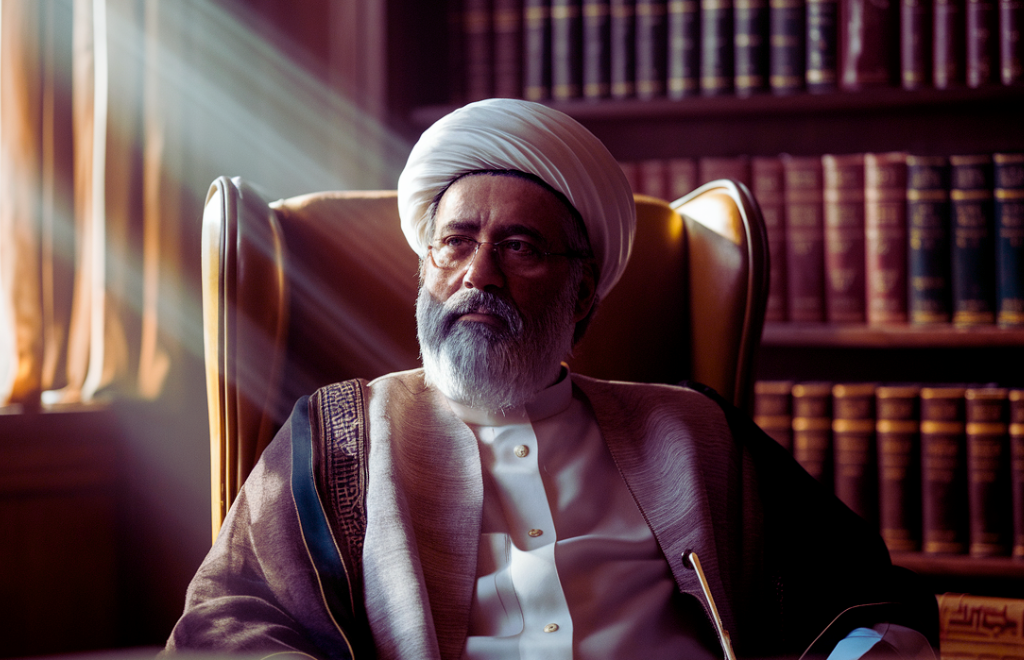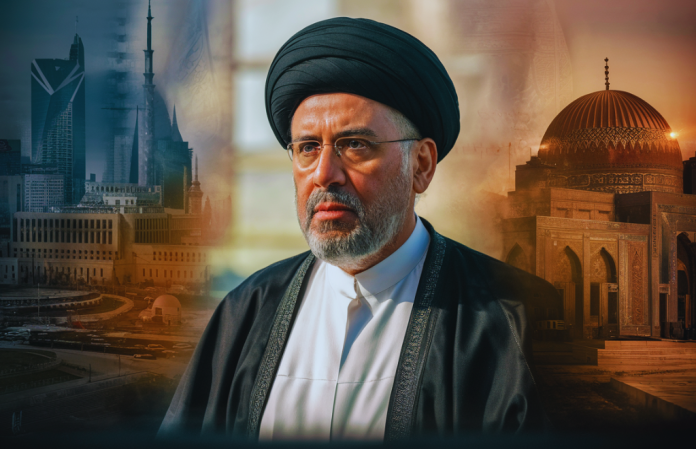Introduction
Ebrahim Raisi, the 8th President of the Islamic Republic of Iran, is a figure whose journey from religious scholarship to the pinnacle of political power encapsulates the complex interplay between religion and politics in Iran. This comprehensive biography traces Raisi’s path from his early clerical beginnings to his current role as a key player on the global stage.
Early Life and Background
Ebrahim Raisi was born on December 14, 1960, in the city of Mashhad, Iran. His family was deeply religious, with his father being a well-respected cleric. This clerical heritage profoundly influenced Raisi’s upbringing and future career choices. From a young age, Raisi was immersed in religious education, attending local seminaries to study Islamic jurisprudence and theology.
Entering the Clergy
The commitment of Ebrahim Raisi to religious studies led him to the Qom Seminary, one of the most prestigious centers for Shia Islamic education. Here, he studied under prominent scholars and gradually built his reputation as a knowledgeable and devout cleric. His early involvement in religious activities and positions within the clerical hierarchy set the stage for his later political involvement.
Political Beginnings
The political career of Ebrahim Raisi began in earnest during the Islamic Revolution of 1979. As a young cleric, he was actively involved in the revolution, supporting the overthrow of the Shah and the establishment of the Islamic Republic. Following the revolution, Raisi took on various governmental roles, leveraging his clerical standing and revolutionary credentials.
Judiciary Career
One of the most significant phases of Raisi’s career was his tenure within the judiciary. Over the years, he held numerous positions, including prosecutor and deputy prosecutor, where he became known for his strict interpretation of Islamic law. Raisi’s judicial philosophy emphasized the preservation of the Islamic Republic’s values and often involved harsh punishments for those deemed to threaten these principles.
Role in the 1988 Mass Executions
Raisi’s involvement in the 1988 mass executions of political prisoners is one of the most controversial aspects of his career. In the aftermath of the Iran-Iraq War, thousands of political prisoners were executed, a decision overseen by a committee that included Raisi. This event has been widely criticized by human rights organizations, casting a long shadow over Raisi’s record.
Advancement in the Judiciary
Despite the controversies, Raisi continued to rise through the ranks of Iran’s judiciary. He held key positions, including Head of the General Inspection Organization and Deputy Chief Justice, where he played a crucial role in shaping Iran’s legal framework. His tenure was marked by efforts to combat corruption and enforce strict adherence to Islamic law.
Ebrahim Raisi as Attorney General
In 2014, Raisi was appointed as Iran’s Attorney General. During his tenure, he pursued several high-profile cases, targeting corruption and financial crimes. Raisi’s approach was both praised for its rigor and criticized for perceived political motivations, reflecting the polarized nature of Iranian politics.
Leadership of Astan Quds Razavi
In 2016, Raisi was appointed as the custodian of Astan Quds Razavi, one of the wealthiest and most influential religious foundations in Iran. This position not only solidified his standing within the clerical establishment but also gave him significant economic and political influence. Under his leadership, the foundation expanded its charitable activities and economic enterprises.
Political Ambitions
Raisi’s political ambitions became evident when he first ran for the presidency in 2017. Although he was defeated by the incumbent Hassan Rouhani, Raisi’s campaign marked his emergence as a significant political figure. His hardline platform resonated with many conservative voters, setting the stage for his future political endeavors.
2021 Presidential Campaign
Raisi’s 2021 presidential campaign was characterized by a focus on economic reform, anti-corruption measures, and a return to the core values of the Islamic Revolution. His message appealed to a broad spectrum of conservative and hardline voters, leading to a decisive victory. Raisi’s electoral success was seen as a shift towards a more conservative and hardline governance in Iran.
Presidency Overview
Since taking office, President Raisi has faced numerous challenges, both domestically and internationally. His administration has focused on tackling economic issues, such as inflation and unemployment, while also navigating complex international relations, particularly with the United States and neighboring countries. Raisi’s policies reflect his commitment to the principles of the Islamic Revolution, emphasizing self-reliance and resistance to Western influence.
Economic Policies
Raisi’s approach to Iran’s economic problems involves a combination of traditional Islamic economic principles and modern reforms. He has advocated for reducing dependency on oil revenues, promoting domestic production, and combating corruption. These policies aim to create a more resilient and self-sufficient economy, though their implementation has faced significant hurdles.

Foreign Relations
On the international stage, Raisi has taken a firm stance on maintaining Iran’s sovereignty and resisting foreign pressures. He has sought to strengthen ties with neighboring countries and other non-Western allies, while also addressing the challenges posed by sanctions and diplomatic isolation. Raisi’s foreign policy aims to position Iran as a key regional power, capable of influencing Middle Eastern geopolitics.
Human Rights Record
Raisi’s human rights record remains a contentious issue. Critics argue that his tenure in the judiciary and his involvement in the 1988 executions reflect a disregard for human rights. Supporters, however, view his actions as necessary for maintaining security and order. As president, Raisi has continued to balance these competing perspectives, often prioritizing national security over individual freedoms.
Personal Life
Despite his high-profile career, Raisi maintains a relatively private personal life. He is married to Jamileh Alamolhoda, an academic, and they have two daughters. Raisi’s public persona is one of piety and dedication to the principles of the Islamic Republic, which aligns with his clerical roots and political philosophy.
Legacy and Impact
Ebrahim Raisi’s impact on Iran is profound and multifaceted. His influence extends across the judiciary, politics, and religious institutions. As president, his policies and actions will continue to shape Iran’s future, particularly in terms of its economic stability and international standing. Raisi’s legacy will likely be debated for years to come, reflecting the complexities of his career and the challenges he faces as a leader.
Conclusion
Ebrahim Raisi’s journey from clerical roots to the presidency of Iran is a story of determination, influence, and controversy. His rise to power underscores the intricate relationship between religion and politics in Iran, and his presidency marks a significant chapter in the country’s history. Whether viewed as a champion of the Islamic Revolution or a controversial figure with a contentious past, Raisi’s impact on Iran is undeniable.
FAQs
1. What are Ebrahim Raisi’s main achievements?
Raisi’s main achievements include his significant role in the judiciary, his efforts to combat corruption, and his leadership of Astan Quds Razavi. As president, his focus has been on economic reform and maintaining Iran’s sovereignty.
2. How did Raisi rise to power?
Raisi rose to power through a combination of his clerical background, involvement in the Islamic Revolution, and influential roles within Iran’s judiciary and religious institutions. His political campaigns emphasized conservative values and economic reform, resonating with a broad base of voters.
3. What controversies surround Ebrahim Raisi?
Raisi is most controversially known for his involvement in the 1988 mass executions of political prisoners. His tenure in the judiciary has also been criticized for its harsh punishments and human rights record.
4. How does Raisi’s presidency impact Iran’s future?
Raisi’s presidency is likely to influence Iran’s economic policies, international relations, and internal political dynamics. His hardline stance and focus on self-reliance may shape the country’s trajectory for years to come.
5. What is Raisi’s stance on human rights?
Raisi’s stance on human rights is complex, balancing national security concerns with individual freedoms. While he has been criticized for past actions, his supporters argue that his measures are necessary to maintain order and protect the values of the Islamic Republic.






